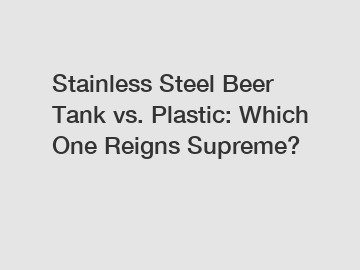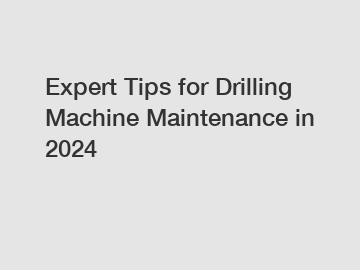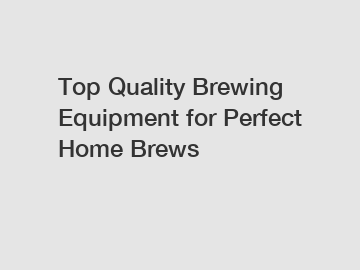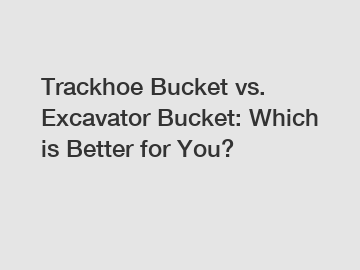Electromagnetic Water Boiler vs Traditional Heating Methods: Which Wins?
Understanding Electromagnetic Water Boilers
Electromagnetic water boilers are gaining popularity as an efficient alternative to traditional heating methods. These modern devices utilize electromagnetic induction to heat water rapidly. Through the process of generating a magnetic field that induces electrical currents in the water, these boilers can achieve consistent heating without direct contact with the heating element. As a result, they are often touted for their energy efficiency and minimal heat loss.One significant advantage of electromagnetic water boilers is their ability to reach desired temperatures quickly. Traditional systems, such as gas or electric water heaters, tend to take longer to heat water, leading to a longer wait time for users. Additionally, electromagnetic boilers typically only heat the water that's needed at any given time, which eliminates the energy waste associated with continually keeping a large tank of water warm.Traditional Heating Methods: Tried and True
Traditional heating methods include gas-fired boilers, electric resistance heaters, and oil-based systems. Each of these systems has been used for decades and comes with its own set of advantages and disadvantages. Gas heaters, for example, are known for their fast heating capability but can produce greenhouse gases. Electric resistance heaters are often easier to install, but they may consume more energy compared to their gas counterparts.Despite their established reliability, traditional heating methods can suffer from inefficiencies. Many of these systems involve water storage tanks that need to be continually heated, leading to higher operating costs. Additionally, the maintenance requirements for these systems can be intensive, particularly for gas appliances that require venting and regular inspections.Energy Efficiency: A Key Factor
When comparing electromagnetic water boilers to traditional methods, energy efficiency becomes a key consideration. Electromagnetic boilers are designed to minimize energy loss by directly heating the water, unlike traditional systems, which rely on external combustion or resistance heating. This allows electromagnetic units to convert up to 90% of the energy they consume into usable heat. On the other hand, traditional water heaters often have lower energy conversion rates due to heat loss during the heating process. Some can be as low as 60%, making them less attractive for environmentally-conscious consumers.Cost Considerations
Initial costs for electromagnetic water boilers can be higher than those for traditional systems. However, it is essential to consider the long-term savings in energy costs. Since these boilers heat water on demand and have lower operational costs, users may recoup their initial investment over time. In contrast, traditional systems can involve higher ongoing costs due to energy consumption and maintenance requirements.When performing a cost analysis, it's also important to consider the life span of the units. Electromagnetic water boilers tend to have a longer life expectancy, which can further offset initial costs.User Experience and Convenience
In terms of user experience, electromagnetic water boilers often provide a more convenient option. They can be installed in smaller spaces, do not require venting, and can be integrated with smart home technologies for user control. Traditional systems, especially those involving gas, may require additional installation methods and space considerations.Moreover, electromagnetic systems can deliver hot water consistently, meaning no more waiting for a tank to refill. This on-demand hot water access can significantly enhance the overall user experience, especially in busy households.Conclusion: Which Method Wins?
In conclusion, while both electromagnetic water boilers and traditional heating methods have their merits, electromagnetic models are emerging as the more efficient and user-friendly option. With advancements in technology, these systems offer quick heating, lower energy costs, and increased convenience. For those considering a new heating appliance or looking to modernize their existing setup, it may be time to make the switch to an electromagnetic water boiler. If you're looking for more information or to explore your options, please feel free to contact us.Are you interested in learning more about electromagnetic water boiler for warming, Small MF melting furnace, Medium Frequency melting furnace supplier? Contact us today to secure an expert consultation!
Additional resources:How Does a Solar-Powered Air Conditioner for Cooling Work?
Gypsum Powder Processing Plant: Drying vs. Calcination Methods Explained
How a Pallet Strap Feeder Optimizes Packaging Efficiency in Warehousing
Are Your EMC Enclosures Meeting Today's Compliance and Performance Challenges?
Poultry Feed Processing Machines: Manual vs. Automated Solutions Explained
Are You Choosing the Right Equipment for Your Brewing Dreams?
How can we reduce noise in 19" Schroff Subrack setups?Additional resources:
Top Benefits of Using Animal Feed Conveyors
How Does an Automated Conveyor Strapping Machine Work?
Essential Guide to 3U 19" Subrack Manufacturing for You
Is Your Strapping Machine Causing Unexpected Downtime?
Feed Processing Line Equipment: Traditional vs. Modern Solutions Explained
Exporting Subracks: Essentials of Electronic Packaging Systems
How to choose the best feed pellet cooler?









